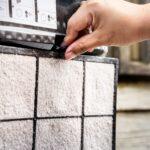If you toggle your thermostat to “cool” and nothing happens, here are the reasons why, and what you can do about it.
It’s getting to be air conditioning time in Pittsburgh. And for some homeowners, that means a frantic call to their local HVAC pros.
That’s because every year in western PA, when the temperature somehow suddenly goes from 55° to 90° (#PittsburghersKnowThis), some percentage of air conditioners just don’t start up.
Sometimes the issue is an easy fix that you can make yourself. Other times you’ll need a pro.
Today we’re listing the most common reasons why A/C units don’t start, what’s behind these reasons, and what you can do about them.
A Tripped Circuit
It’s always a relief to find out that when your air conditioner doesn’t start, the problem isn’t your air conditioner at all. A lot of times it’s simply a tripped circuit or blown fuse, in which case the power to your A/C unit is cut off.
So if your A/C isn’t working, we recommend taking a look at your home’s electrical panel before you call an HVAC pro. Reset any tripped breakers and then see if your A/C starts.
Now, related to tripped circuits are wiring problems. Insufficient circuitry, faulty wiring, or loose connections in your home can disrupt power supply to your A/C unit. So, your air conditioning issue may actually be an electrical issue, in which case you’ll need an electrician and not necessarily an HVAC pro.
A Faulty Thermostat
Your thermostat is the command center for your air conditioning system. It tells your system how much cool air to produce and when.
If the thermostat is failing, it might not be able to give any commands to the A/C system. A thermostat might fail because of:
- Dead batteries.
- A mode, temperature, program, or fan setting that won’t trigger your A/C to run.
- Internal malfunctions such as a faulty wiring connection or a broken sensor.
The first things we recommend in this case are replacing the batteries and making sure your thermostat settings are actually instructing your A/C to turn on when you want it to.
One of the jokes around here is that smart thermostats can be too smart. Once they’re programmed, it isn’t always obvious to homeowners how to override or change that programming. And we know that users’ manuals aren’t always clear, either.
If your thermostat seems indecipherable, please give us a call. We’ve seen them all, and we’ll either get yours to behave or help you replace it.
An Overloaded Compressor
An “overloaded” compressor refers to one that’s under too much stress or strain, which causes it to work harder than it should. This condition can lead to the compressor overheating and eventually failing.
An overloaded compressor can stop your A/C from turning on at all, although you’ll probably notice some signs before it goes dead completely. These signs include strange noises, frequent cycling, or reduced cooling capacity.
Several factors can contribute to compressor overload:
- High refrigerant pressure. If the pressure in the refrigerant lines is too high, the compressor has to work too hard to circulate the refrigerant. High refrigerant pressure can result from overcharging of refrigerant, blockages in the line, or malfunctioning expansion valves.
- Low refrigerant pressure. If the pressure in the refrigerant lines is too low, the compressor has to run longer to maintain cooling. This taxes your compressor over time. One of the most common causes if low refrigerant pressure is a leak in the lines.
- Dirty Condenser Coils. The condenser coils have the job of completing the heat exchange cycle. They release the heat absorbed from inside your home to the outside air. When they’re dirty, they can’t release heat effectively. This inefficiency forces the compressor to run longer and work harder to achieve the cooling effect you’re looking for. Thus your compressor overheats.
- Inadequate Airflow. Things like clogged filters, improperly sized filters, blocked ducts, and malfunctioning fans restrict airflow in your HVAC system. Reduced airflow is yet another factor in making your compressor work too hard and eventually break down completely.
An overloaded compressor is an issue for an HVAC pro. The solution may involve a refrigerant fix, like charging it, replacing it, or repairing a refrigerant leak.
Refrigerant isn’t something a homeowner should attempt to tackle. Handling it requires special equipment and precautions. Plus, A/C warranties almost always require that HVAC pros, not homeowners, deal with refrigerant issues. You don’t want to void your warranty by attempting to make refrigerant a DIY project.
An HVAC pro can also clean, repair, or replace any faulty compressor parts, or replace your entire compressor unit.
If the unit itself needs replacing, you probably want to consider a new air conditioning system. Your HVAC pro can help you decide if it’s time for that. And if it is indeed time for that, a pro will guide you in choosing an energy-efficient, long-lasting model that saves you money and gets you out of the endless repair cycle.
We’ve written before about how to tell if it’s time for a new air conditioner. Check it out so you’re prepared before you start getting estimates.
Capacitor Issues
The capacitor provides the spark that starts the compressor. If this component fails, your air conditioner won’t start. A capacitor might fail for the following reasons:
- Age and Wear. Like any component, capacitors have a finite lifespan. They typically last around five to ten years, depending on their quality. However, this shouldn’t mean that a new air conditioner will stop working in five to ten years. If you schedule regular HVAC maintenance, the company you use will replace an aging or worn capacitor before it gives out on you. Here is information on our maintenance plans. We’d be happy to take care of your HVAC system for you.
- Overheating. Capacitors are particularly sensitive to high temperatures. If your A/C system has a ventilation issue that prevents its components from being cooled properly, the capacitor can overheat and break down much faster than it would otherwise.
- Electrical Overloads. If the electrical demand on your A/C system exceeds the capacity of its electrical components, the stress to the capacitor may cause it to fail. Electrical overloads can happen if your air conditioner is subjected to frequent power surges, if there’s some other problem with the power supply to your A/C, or if your AC unit is too large for the electrical system it’s connected to.
A faulty capacitor is usually a straightforward fix. Especially handy homeowners can probably tackle this one, but the tricky part is diagnosing that the capacitor is the problem in the first place.
We recommend that if your air conditioner isn’t turning on, and you’ve determined that the problem is not a tripped circuit breaker or a thermostat setting:
- Give an HVAC pro a call. A trustworthy one will help you and not just try to sell something to you.
- Commit to regular spring and fall maintenance. These regular packages are critical in minimizing the A/C issues we’ve discussed today, and maximizing your indoor comfort for years to come.
_____________
At Kowalski Heating, Cooling, and Plumbing, we’ll get your air conditioner up and running with the least intrusive solution possible. We can diagnose and repair any make and model on the market, and we won’t try to sell you a new HVAC system before it’s really and truly time for one.
If your air conditioner isn’t starting, we’re here for you!, Call or text us at 412-952-5923. You can also contact us via our website any time. We look forward to serving you!





